We usually think of our skincare routines as something that’s static, but our lives change and our routines must adapt to those changes. During summer, there are some skincare actives we should pause to avoid damaging our skin through the higher UV radiation levels. Let’s see how you should change your skincare routines during summer!
The good weather is finally here!! Step by step, after all storms, the first decent sun rays begin to appear out of nowhere, I don’t know about you, but I needed this. Now that the heat arrives, it is as if I was coming back to life, suddenly there are more and more plans, you can make more trips, you start to smell the beach… do you notice that I am from a coastal city and I missed this?
With summer the needs of our skin also change. After all, if you do not wear the same clothes all year round, why would you dress your skin with the same stuff 365 days a year? This is the time for lighter textures, of having a good mist always at hand, and of changing your winter skincare products by others more suitable for summer.
We have to take care of our skin with the same love even if the weather becomes warmer, it still has its needs. Summer is a time to moisturize a lot (and not just by drinking more water) and to protect ourselves against radiation, which is turning stronger every day.
I will try to summarize this post in two main blocks:
1. WHAT SKINCARE PRODUCTS DO YOU NEED TO DITCH DURING SUMMER?
AHAs and BHA.
Many have contacted me asking for advice on how to start using acids, a topic on which I already shared a post back in the day.
Acids may seem complicated, it is easy to get lost among lactic, glycolic, mandelic, malic, etc., but I’m sure that, on my guide, you’ll find the information you need on which one is most suitable for your skin type. Also, I’d advise you to read this post if you’re thinking about introducing acids in your skincare routine. The acids that we apply directly on the skin are divided into two large groups: BHA (salicylic acid) and AHAs (glycolic, mandelic, malic, azelaic, and lactic acids, among others). By using them we apply a chemical exfoliation to our skin, removing the dead cells that give you a duller appearance and thus improving the tone and texture of the skin. If you are looking to give your skin a good revitalizing boost, they are for you.
And now that the summer is coming? Well, I’m sorry to tell you, but you probably must to leave your acids well stored until autumn. Why? Because acids make our skin more photosensitive: the solar radiation damages it more, so if we use them, they can leave spots, redness, irritation, etc. much more easily (yes, even if you use sunscreen). In addition, by exfoliating the skin so effectively, it becomes much more unprotected, so the sun can feast on it (unnecessarily).
I am quite conservative in this matter, I think it is better to wait and use acids when they do not pose a risk and in the meantime I’ll use other products that help me keep my skin well nourished and hydrated.
YOU CAN SWITCH THEM FOR: you can substitute your glycolic acid toner for a more hydrating one, such as the Pyunkang Yul Essence Toner. You could switch your acids for other products aimed to improve your skin tone and texture, such as The Ordinary Niacinamide 10% + Zinc 1%, which you can get on DECIEM (recommended), on Amazon, on SkinStore and on FeelUnique.
Vitamin C.
Like acids, vitamin C (ascorbic acid), about which you can read more here, is one of your great allies if you have spots that you want to reduce. Personally, I love using the Vitamin C Suspension 23% + HA Spheres 2% from The Ordinary, which I talked about in this post, but now it has been well stored until the stormy weather is back. There are many products with vitamin C, but finding one this effective is not easy.
Vitamin C is a very effective antioxidant, especially for those who have combination, oily or dry skin. It helps to rebalance skin tone and texture, but those who have sensitive skin should not use its stronger forms, as you may find it irritating (and thus, weakening your skin barrier).
During summer, it happens something similar as with acids. Since vitamin C makes a light exfoliation on your skin, if you use it when you are going to expose yourself to radiation you run the risk of getting new spots, thus taking a step back in taking care of your skin.
YOU CAN SWITCH IT FOR: If you feel like you really need to use a product with vitamin C during the summer, you should focus on those with lower concentrations or derivatives of ascorbic acid to avoid exposing yourself to unnecessary risk. Keep in mind that there are plenty of antioxidants you can keep on using during summer with no worries at all. A good vitamin C derivative to use might be the The Ordinary Magnesium Ascorbyl Phosphate 10%, which you can find on DECIEM (recommended) and on Amazon.
Retinoids.
Retinol (vitamin A) and its derivatives, about which you can read more here, such as The Ordinary Granactive Retinoid 2% Emulsion, which you can find at DECIEM (recommended), are a great solution to fight acne and rebalance your oil levels while you help reduce wrinkles and fine lines (since it increases the production of collagen). It has been used as a skin care product since 1943, and is one of the most studied and reliable ingredients around.
Although today there are many formulations with retinol and retinoids, the most powerful products are, at the same time, those that weaken the skin barrier the most (I already told you about it in this other post).
When using retinol, your skin’s sensitivity to radiation increases, so during the summer you are at greater risk when using it. It is true that retinol should be used at night, so it is easy to think that radiation will not affect you, but you should bear in mind that its effects last longer, so I would definitely recommend leaving the retinol on the shelf until the autumn. Of course, if you properly avoid exposure to radiation, you could keep on using retinoids, but I live in a city with plenty of UV radiation, so I’d rather take a more cautious approach.
YOU CAN SWITCH THEM FOR: If you want to continue using it, you can focus on formulations with lower concentrations of retinoids, in order to reduce the risk of spots appearing, such as with The Ordinary Granactive Retinoid 2% Emulsion, which you can find on DECIEM (recommended), on SkinStore and on FeelUnique, about which I spoke above.
Hydroquinone.
Hydroquinone is a very effective and powerful treatment when it comes to removing stains and lightening the skin tone, so in winter it can be used in localized areas. Maybe you remember it from the products that you should not use during pregnancy.
This compound works in a simple way: it reduces the amount of melanin that your skin produces and thus the spots are reduced. This has a great disadvantage in summer: if you produce less melanin your skin will be more exposed to radiation and you can burn more easily (and you may even get new spots). Generally speaking, if you can, leave it well stored and use it again when you stop exposing yourself to the strong summer radiation.
2. WHAT SKINCARE PRODUCTS YOU SHOULD USE MORE OFTEN DURING SUMMER?
Sunscreen.
There are many people who think that sunscreen is that dense and thick cream that you put on the beach to look like a ghost and that’s it. But no, sunscreen is the best ally of your skin to prevent wrinkles, blemishes and, more importantly, melanoma and other types of skin cancer.
We all know the theory: we have to apply sunscreen before exposing ourselves to the sun to be effective, but are you sure you don’t make some of the most common sunscreen mistakes? The reality is that many times we tend to use it when we are already exposed or immediately before. We only have one skin, and sunscreen is the best way to take care of it.
If you want to use sunscreen effectively you will have to reapply. Yes, this means that you will have to take sunscreen with you and use it again one or two hours after the first application. The first two hours is the time when the sunscreen loses most of its effectivity, so if you reapply in that time you will be making sure that your skin is well protected against radiation. Also, if you are going to spend the day roasting in the sun, try applying it again every two hours (and always after swimming or practicing any exercise) to avoid burns, stains and other sun damage. If you still haven’t found the perfect one for you, you can check my comparison of sunscreens.
Moisturizer.
During the summer we become more dehydrated, and that truly affects our skin. Think of that day you spend on the beach, hiking, walking around the city or in the pool. The water evaporates at an incredible speed, so it is good to take care of your skin and rehydrate it as much as necessary.
The moisturizer helps you maintain the levels of water and oil on the surface of your skin, so that it remains elastic, firm and protected. During the summer, when we sweat more, we lose a lot of water and our skin suffers. It is easy to feel dryness and tightness, so it will be great to re-apply your moisturizer and give your skin an extra dose of water. And remember, drink plenty of water to keep everything hydrated you need.
If you want a nice, effective and lightweight moisturizer I’d recommend you to go with this one from Youth to the People.
Mists.
Mists are amazing during summer. Imagine the scene: you are on the couch, it is unbearably hot and you do not want to move, but you need to refresh yourself. You take your mist, you spray yourself a couple of times and that’s it.
Having a good mist like this from Hyggee or like this one by NIOD, loaded with antioxidants and that is available at DECIEM and FeelUnique, handy will help you keep your skin well hydrated and, in addition, will help reduce your body temperature.
The best thing about mists? Some of them incorporate ingredients that feel wonderful on your skin, helping to reduce excess oil (such as niacinamide) and improve hydration (such as hyaluronic acid) so you can cool down while taking care of your skin.
What products are you going to miss the most during summer? Have you already found your go-to sunscreen now that the heat is approaching?
If you liked this post and want to continue reading about beauty, cosmetics and skin care you will be interested in reading these:
Do you want to learn to take better care of your skin? You can see an index of all my informative posts here.
● Follow me on Instagram, Facebook, TikTok and Pinterest.
● Share, comment and like my posts on social media.
● Shop through my links to help me keep up with this blog.

I’m Nacho and I’m passionate about skincare. I really enjoy learning and sharing my knowledge about skincare and I read scientific papers so you don’t have to. I want to break stereotypes because I believe skincare has no gender: skin is skin.


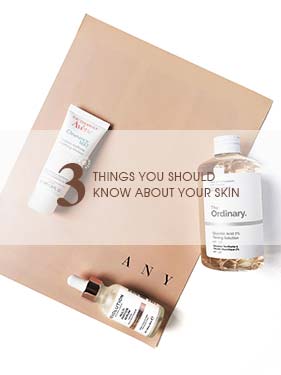
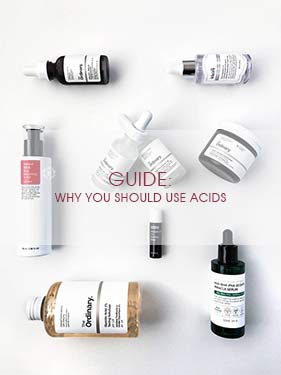
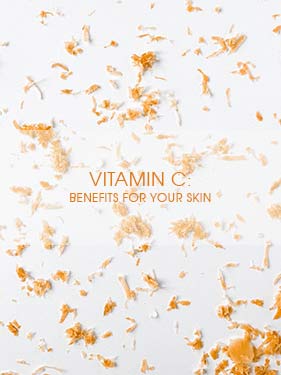
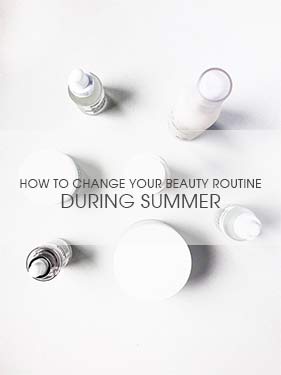
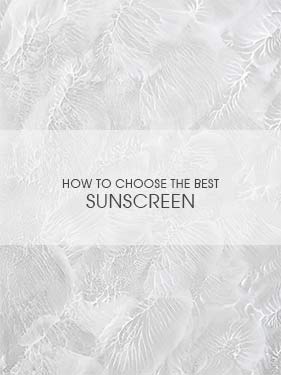
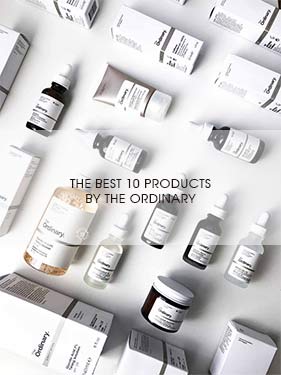


This was quite informative and will definitely help me make decisions about my skin care routine. I have hyperpigmentation is areas and it has worsened.
Hi Lydia! 😊
Thank you so much for your support, I really appreciate that you value my work! If you want to check some insights on hyperpigmentation you might find my guide on spots useful 🖤
Remember to follow me on Instagram, Facebook, Pinterest and TikTok and to like, comment and share my posts so that I can help more people take care of their skin 😉
Have a lovely day,
Nacho.